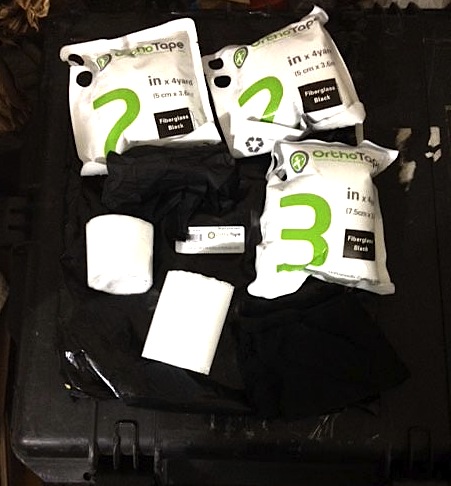Okay, I have a silly question, does/has anyone got solar panels in a shed or store room just for emergencies (sort of like a stand by generator), the reason I am asking is I would love to pick up a KW of solar, but the wife says no... I am wondering if I could create some sort of standby rack that could be filled just when I need them and then put them away when done.... I know it's a little crazy but I am trying to think of what I can do in the now to be ready for the then.
You know like Johnny Cash and his Cadillac, if I get the wires, fittings, controller, and then the panels no one will notice........ designing slide in racks and quick connects might be interesting, but hey that's what I do....
Call me crazy then.......
That is exactly what I have.......
The above system is a 230W solar blanket, MPPT controller, 100Ah LiFePO4 battery in a box and a 1500W Pure Sine Wave inverter. It all packs up into the size of a small suitcase and can run a lot of gear.
I have about 2000W of portable solar panels - some are folding blankets like the above, some are semi flexible and some are rigid. I don't use racks to hold them, most of mine have legs that allow them to free stand on the ground at a good angle to the sun. Being movable, I can track the sun through the day by moving them every couple of hours.
When we get power outages, I can run our two domestic fridges, some lights and key electronics with about 1000W of portable panels and five 100Ah LiFePO4 batteries. Each battery can run a 1500W inverter. One inverter can run both fridges.
In a bad crisis, panels on the ground are easier to hide and can be brought inside overnight to prevent them being stolen.
If I have to bug out, the solar comes with us.
We already use all this gear for camping, so it is not just a prep. The camping use has taught us a lot about solar.
My tips would be:
1) Use heavy cables that minimize voltage drop - especially those that feed the inverters
2) Get good quality MPPT controllers - they make a big difference to charge current from the same panel - I like the EPEVER Tracer 5206BP (20 Amp) for it's programmability and IP66 waterproofness.
3) Get good plugs to connect everything together - I use Anderson 50A plugs as much as possible
4) Get LiFePO4 batteries if you can afford them - they pay for themselves over their 15 year life and have great capability to weight ratio.





